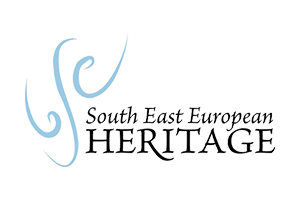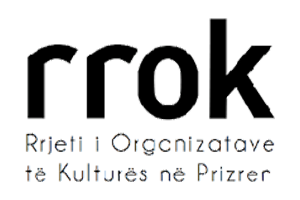Wastewater treatment should be a priority of two levels of government

Contaminated water poses a risk to human health and the functioning of ecosystems. Uncontrolled discharges can result in the contamination of drinking water sources, their overloading with organic matter and the accumulation of heavy metals. The uncontrolled discharge of sewage is not only causing problems in the contamination of drinking water and directly affecting our health, but it is also affecting the depletion of the diversity of flora and fauna in these rivers.
Analyzing the territory of Kosovo, at first sight it seems that we are rich in rivers, but in fact Kosovo has little water, much less than all its neighbors. Kosovo also has the lowest level of development and conservation of water resources, their condition is deplorable even though investments have been made in its improvement. According to the World Bank report, since 1999, more than €250 million have been invested in the water management sector in Kosovo, mainly from the funds of foreign embassies and international financial institutions. However, since 2009, we have increased contributions from local and central institutions as well as regional water supply companies. (https://documents1.worldbank.org/curated/en/496071548849630510/Water-Security-Outlook-for-Kosovo.pdf?fbclid=IwAR37qLb7nTVaOBqPSvXwaQvTVQ_hscuGiiNgog8ob3fglnHGvH7D8v-Zxt8_aem_AXFNKC8-20QkHdJGUaSAIwoYsMlsm2SYh-HSkakk4HnrPReNxJivo2qHlzBxyR08eGrxy8Q4wogj3khlzSGjqz9O)
The problems of water supply in Kosovo are not only related to the supply and access to water, but also the access to safe water. The survey of multiple indicators by UNICEF and the Kosovo Statistics Agency shows that, although in a low percentage, in some cases there is the presence of Escherichia coli bacteria in the drinking water used by the citizens of Kosovo.
Resolution 64/292 of the UN General Assembly has recognized the supply of clean water as a human right and essential for the realization of all human rights. It also expresses that states have the main responsibility for guaranteeing the full realization of all these rights.
The main human activities that are considered sources of water pollution are: exploitation of sand and gravel, dumping of waste, derivative products and chemical lubricant spills from water transport vehicles, soil washing, agricultural activities, and last but not least, are the discharges of urban and industrial wastewater into the river without being treated.
One of the best ways to stop river pollution so far is to build water treatment plants. Wastewater treatment plants have a processing capacity of thousands of cubic meters of water per day. Through this modern technology, waste water is transformed into clean water up to 97%.
According to the report of the Regulatory Authority for Water Services (http://www.arru-rks.org/assets/cms/uploads/files/Monitorimi i Performances/RAPORTI I PERFORMANCES-2020 ALB_fin.pdf?fbclid=IwAR35PsXzhRTjBwyA6tFYG2PZ7pTX08O5xr2eZr7h_D63funA91BNIZFNR0s_aem_AXFo4LCXGUwv-BHvOWPkkpSKKPnJUH9_2jT3EV2RYDy1t30oztsoM4NhFmy5DFap6I8apgZ6eYSSktSSkmDAIxQ1)
who, in addition to the water supply service, also provide the wastewater collection service, it is said that in 2020, this service was provided for about 65% of the population and if compared to the previous year 2019, it remained in the same position.
Investments for a decent sewage system and plants are considered very important for the environment and for the places where these waters flow. Therefore, in order to ensure the quality of our water resources, it is not only necessary to monitor and control them from discharges of pollutants, but also to start with the treatment of these polluted waters.
In the KDI report (https://kdi-kosova.org/wp-content/uploads/2020/03/22-Lumenjt-e-zi-te-Kosoves-Raport-04.pdf?fbclid=IwAR2d5_6LHL6AMIZlmqJyhfLOjYx4KRZmwn6GW0P6Lj_JH4807ZAIm_CKcLY_aem_AXFc3EP3pY4Jg_o19VreT7Wwej4eJqZGD7E-lxlS3UUxOjWscP142tbxc9iBsOXBS-8shTjcFd075snzGDVzn5y-)
it is emphasized that to date in Kosovo less than 1% of polluted sewage has been treated. It is also said that during the years 2017-2019, the public institutions of Kosovo had contracted 326 projects for the construction of sewers, which flow into all the rivers of Kosovo. Meanwhile, despite the financial resources they had at their disposal, the institutions had only contracted 8 projects for the construction of wastewater treatment plants (or only 7% of the planned projects), all with a monetary value of close to 43 million euros . It is also emphasized there that the law on environmental impact assessment does not foresee provisions that require such assessments for capital investments in sewerage networks, despite the fact that they are the main polluters of our rivers.
Urban water treatment in the country is very low. Currently, the largest wastewater treatment plant is in Skenderaj and several small plants at the local level. Last year, another plant was inaugurated in Prizren, which in the first phase started operating for 50,000 inhabitants, thus covering only 35% of the city.
At the inauguration of this project, the Prime Minister of the Republic of Kosovo, Mr. Albin Kurti warned that by the beginning of next year, it is expected that the wastewater treatment plants in Peja and Gjakova will be put into operation, with which the treatment rate would reach about 9% of the population. And by the end of 2025, this figure is expected to reach about 50% of the population, mainly in large urban centers, adding Prishtina, Obiliq, Fushë Kosovë, Gjilan, Ferizaj and Mitrovica.
In the report "Kosovo Water Security Outlook" (https://documents1.worldbank.org/curated/en/496071548849630510/Water-Security-Outlook-for-Kosovo.pdf?fbclid=IwAR2R1dm5Ofa3_sjS8rJnrtFIdK9kBFSVuOIGUNOjhCGVvcl15gdWXFBCGxo_aem_AXH6afYihjIlt64VRJOA5lN4g_rlTLxM2fE2rvk7i2qofynvweRllqnQk6xUfwCPN-GMIVEmRdXOpsTc3rE1L98n)
it is noted that all the main river ponds in our country are recognized and reported as moderately or highly polluted. Drini i Bardhë is the healthiest river as it has less pressure and higher water flow, but this river is also heavily polluted in its lower reaches by industrial and urban wastewater, but also agricultural nitrates and phosphates.
In order to reduce the pollution in this river, the deputy mayor of the Municipality of Prizren, Mr. Kujtim Gashi, during the last conference organized by EC Ma Ndryshe, emphasized that the municipality's plans for the coming years include the expansion of the wastewater plant project, including the neighborhoods from which the wastewater flows into it.
In 2019, a significant amount of fish and cattle died in this river due to contamination from pollution.
Even the 2030 Agenda for Sustainable Development in objective number 6 (https://www.un.org/sustainabledevelopment/water-and-sanitation/?fbclid=IwAR2qiGtW1nGx_iw2S6YS56Q4TKStaLZJ5ZrS_wSsR2O4WzSCHVYdcDrVldQ_aem_AXGfD1lZ-NbeQyCAM_CBEuEoQeTE2DYqHXuG2Yy38bP-7aOTo1xUxh_xnnD-u2BdvFSFIVW8Kbu1Brv0ND8kplE7)
include as its sub-objectives the improvement of water quality by reducing pollution, eliminating dumping and minimizing the release of hazardous chemicals and materials, halving the percentage of untreated wastewater and significantly increasing recycling and reuse globally.
Therefore, undoubtedly, the increase in the number of these plants and their realization for a faster time are more than necessary, but at the same time, the number of field inspections must be increased to prevent the contamination of these rivers.
Prevention of pollution and informing citizens about the damage they are causing to themselves and nature remain the biggest challenges. Therefore, taking into account the influence of the human factor on water pollution, in addition to the fact that the central and local level should give more priority to these investments and enable the realization of all projects for plants for the treatment of polluted water, at the same time each we must be more loving to nature and take care of these water resources that we have.




